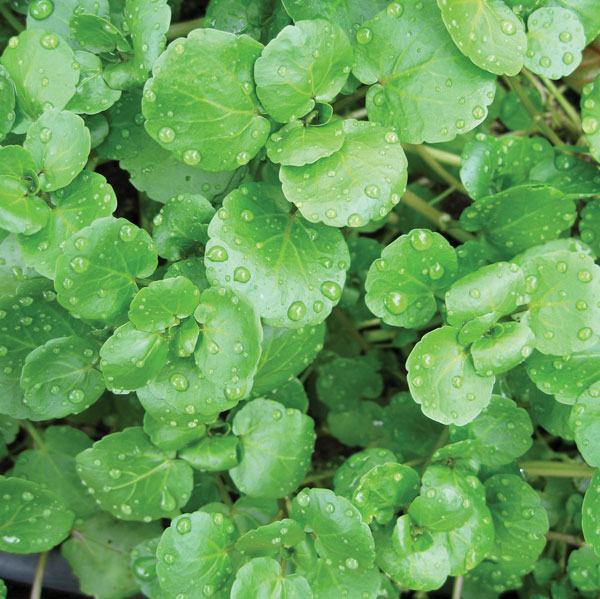Some Benefits of Mushroom Coffee
I wrote this article regarding “The Benefits of Mushroom Coffee” has gained a lot of attention on social media, with people raving about its supposed health benefits.
Many claim that it can boost the immune system, reduce inflammation, improve brain function, support liver health, and provide antioxidants. But is there real science behind these claims, or is it just another trendy health fad? And how does it compare to traditional coffee?
What Exactly Is Mushroom Coffee?
Despite its name, mushroom coffee isn’t just a cup of regular coffee with chunks of mushrooms floating around. Instead, it’s a blend of regular coffee and powdered medicinal mushrooms. Some of the most common mushrooms used include:
- Lion’s Mane – Known for its potential brain-boosting effects.
- Chaga – Rich in antioxidants and often used for immune support.
- Turkey Tail – Believed to support gut health and the immune system.
- Reishi – Traditionally used for relaxation and stress relief.
- Cordyceps – Popular for increasing energy and athletic performance.
To make mushroom coffee, these mushrooms are dried, ground, and extracted into a fine powder, which is then blended with coffee. The final product has a smooth, slightly nutty taste with an earthy twist.
If brewing fresh coffee isn’t your thing, mushroom coffee is available in multiple forms, including ground coffee, instant packets, premade lattes, and single-serve pods for convenience.
Potential Benefits of Mushroom Coffee
Mushrooms are packed with essential nutrients. According to Mindy Haar, a registered dietitian and chair of interdisciplinary health sciences at the New York Institute of Technology, mushrooms provide B vitamins, potassium, selenium, copper, zinc, and vitamin D, along with dietary fiber.
A 2023 review published in the journal Molecules highlighted that medicinal mushrooms contain compounds that may:
- Help prevent cancer
- Manage diabetes
- Support immune system regulation
- Aid in weight management
- Slow down aging
Another key difference between mushroom coffee and regular coffee is the caffeine content. Because it combines ground coffee with caffeine-free mushroom powder, mushroom coffee contains less caffeine than a traditional cup of coffee. For example:
- A standard brewed coffee contains about 96 mg of caffeine per cup.
- Ryze mushroom coffee contains about 48 mg per cup.
- Four Sigmatic mushroom coffee has around 50 mg per serving.
Lower caffeine levels can be beneficial for people sensitive to caffeine, reducing the likelihood of jitteriness, anxiety, and energy crashes. Matthew Landry, a registered dietitian and assistant professor at the University of California Irvine, also points out that caffeine is a diuretic, meaning it makes you urinate more frequently.
For older adults who don’t drink enough water, excessive caffeine intake could contribute to dehydration. This makes mushroom coffee a potentially better choice for those who want a lower-caffeine option.
Does Mushroom Coffee Really Work?
Despite the buzz around mushroom coffee, the research on its actual benefits is still limited. While mushrooms themselves have well-documented health benefits, there aren’t many studies specifically on mushroom coffee. According to Landry, the scientific evidence is not strong enough to prove that drinking mushroom coffee provides all the claimed advantages.
For those looking to reap the benefits of mushrooms, Haar suggests a simpler and more affordable alternative: stick to regular coffee and include mushrooms in your diet by eating them in meals. Cooking with fresh or dried mushrooms ensures you get their full range of nutrients without relying on an expensive, trendy coffee blend.
Additionally, it’s unclear whether the extraction process used to make mushroom coffee preserves all the mushrooms’ beneficial compounds. More research is needed to determine if drinking mushroom coffee is as effective as consuming mushrooms in food form.
Research on Benefits of Mushroom Coffee
Here’s a look at some of the research on potential benefits of mushrooms:
- Reduces Stress
Medicinal mushrooms have been found to have adaptogenic properties. Landry explains that adaptogens “help the body adapt to better respond to stressful situations.” Compounds in medicinal mushrooms can affect cortisol levels, the stress hormone released when the body is under stress.
Mushrooms may help regulate cortisol production, which could reduce the body’s response to stress. Landry also notes the long history of mushrooms in traditional Chinese medicine for stress relief and wellness.
- Improves Memory
A 2022 study examined mushroom consumption in older adults in the United States. Researchers found that those who ate mushrooms more often scored higher on cognitive tests, suggesting that regular mushroom intake may help protect brain function.
Coffee containing lion’s mane mushroom extracts may also contribute to mental sharpness and memory. A 2021 laboratory study suggests that lion’s mane may increase the production of nerve growth factor (NGF), a protein crucial for nerve cell growth. However, more research—especially human clinical trials—is needed to confirm these effects.
A 2023 laboratory study, partially funded by the Australian government’s Boosting Dementia Research Initiative, found that mice’s memory improved significantly when they consumed lion’s mane crude extracts and Hericene A, a compound found in lion’s mane. Further investigation, particularly in human studies, is necessary to determine its effectiveness in preventing cognitive decline.
- Boosts Immune System
A 2019 laboratory study examined substances extracted from turkey tail mushrooms and found that they may activate the body’s immune defenses and reduce inflammation. However, the research was sponsored by a company that commercially sells mushrooms, and larger human studies are needed for definitive conclusions.
A 2018 laboratory study on Ganoderma lucidum (reishi) found that its extract helped suppress tumor growth and boost immune function in mice with liver cancer. The extract appeared to work through four specific pathways related to cancer treatment and immune response. However, further human studies are necessary to confirm these effects.
- Helps Heart Health
Some medicinal mushrooms show promise for improving heart health. A 2022 study found that cordyceps may help manage irregular heartbeat, though more research is needed.
Side Effects of Mushroom Coffee
Since research on mushroom coffee’s side effects is limited, questions about safe intake and potential risks remain unanswered. Maggie Berghoff, a functional medicine nurse practitioner, warns that some medicinal mushrooms may thin the blood. People taking anticoagulants like warfarin or aspirin should consult their healthcare provider before drinking mushroom coffee.
Additionally, Haar notes that mushroom coffee contains high oxalate levels, which may be problematic for those with kidney issues. People on immunosuppressants or blood pressure medications should also check with their doctor before trying mushroom coffee.
Some individuals may experience digestive discomfort or allergic reactions depending on the specific mushroom blend used in the coffee. As with any supplement, it’s best to start with a small amount and monitor for any adverse effects.
Benefits of Mushroom Coffee
Mushroom coffee is a blend of regular coffee and powdered medicinal mushrooms, such as chaga, lion’s mane, cordyceps, reishi, or turkey tail. It combines the energizing effects of coffee with the potential health benefits of mushrooms. Here are some key insights into its benefits and considerations:

MORE INSIGHTS
- Reduced Caffeine Content
- Mushroom coffee typically contains less caffeine than regular coffee, making it a gentler option for those sensitive to caffeine. This can help reduce jitters, anxiety, and crashes associated with high caffeine intake.
- Sustained Energy Without the Crash
- Cordyceps mushrooms, often used in mushroom coffee, are known for their ability to enhance energy and endurance by improving oxygen utilization and ATP production. This can provide a more balanced and sustained energy boost compared to traditional coffee.
- Cognitive Support
- Lion’s mane mushroom, a common ingredient in mushroom coffee, is renowned for its potential to support brain health. It may improve focus, memory, and cognitive function by promoting nerve growth factor (NGF) production.
- Adaptogenic and Stress-Relieving Properties
- Reishi mushrooms, often included in mushroom coffee blends, are adaptogens that help the body manage stress. They may promote relaxation, reduce anxiety, and improve overall mental well-being.
- Immune System Support
- Mushrooms like chaga and reishi contain beta-glucans and other compounds that may enhance immune function, helping the body fight off infections and maintain overall health.
- Rich in Antioxidants
- Medicinal mushrooms are packed with antioxidants, which help combat oxidative stress and reduce inflammation. This can protect cells from damage and support long-term health.
- Gut Health Benefits
- Some mushrooms, like turkey tail, contain prebiotics that support a healthy gut microbiome. A balanced gut is linked to improved digestion, immunity, and even mental health.
- Anti-Inflammatory Effects
- Compounds in mushrooms, such as triterpenes in reishi, have anti-inflammatory properties. This can help reduce chronic inflammation, which is associated with many health conditions.
- Digestive Comfort
- Mushroom coffee is often easier on the stomach than regular coffee, as it is less acidic. This makes it a good option for those who experience digestive discomfort or acid reflux from traditional coffee.
- Nutrient Boost
- Medicinal mushrooms are rich in vitamins, minerals, and other bioactive compounds. For example, chaga is high in B vitamins, potassium, and zinc, adding nutritional value to your daily cup.
Considerations and Potential Drawbacks
- Taste
- Mushroom coffee has an earthy, slightly bitter flavor that may take some getting used to. Blends with coffee help mask the mushroom taste, but it’s still distinct from regular coffee.
- Cost
- Mushroom coffee is often more expensive than regular coffee due to the cost of sourcing and processing medicinal mushrooms.
- Allergies and Sensitivities
- While rare, some people may be allergic to certain types of mushrooms. It’s important to start with small amounts to ensure you don’t have an adverse reaction.
- Medication Interactions
- Medicinal mushrooms can interact with certain medications, such as blood thinners or immunosuppressants. Consult a healthcare provider if you’re on medication or have underlying health conditions.
- Not a Magic Cure
- While mushroom coffee offers potential health benefits, it’s not a substitute for a balanced diet or medical treatment. It’s best used as part of a holistic approach to health.
How to Choose Mushroom Coffee
- Quality Matters: Look for products made with organic, sustainably sourced mushrooms and coffee.
- Mushroom Extract vs. Powder: Extracts are more concentrated and often more effective than plain powdered mushrooms.
- Blend Composition: Check the label to see which mushrooms are included and their intended benefits (e.g., lion’s mane for brain health, cordyceps for energy).
Who Might Benefit from Mushroom Coffee?
- Coffee drinkers looking to reduce caffeine intake.
- Individuals seeking sustained energy without crashes.
- Those interested in cognitive support or stress relief.
- People looking to incorporate more functional foods into their diet.
Final Thoughts
Mushroom coffee is a unique and innovative way to enjoy the benefits of both coffee and medicinal mushrooms. It offers a gentler caffeine experience while providing potential health benefits like improved focus, energy, and immune support.
However, it’s important to choose high-quality products and approach it as a complementary addition to a healthy lifestyle rather than a cure-all. If you’re curious, start with a small amount to see how your body responds!
How to Prepare Mushroom Coffee
Mushroom coffee is a great way to enjoy the benefits of medicinal mushrooms while still getting your caffeine fix. You can either buy pre-mixed mushroom coffee blends or make your own at home using ground mushrooms and coffee.
Ingredients:
- 1 cup of hot water
- 1 teaspoon of mushroom powder (e.g., lion’s mane, chaga, reishi, cordyceps, or turkey tail)
- 1 teaspoon of ground coffee (or more, depending on preference)
- 1 teaspoon of honey or sweetener (optional)
- ¼ cup of milk or plant-based alternative (optional)
- ½ teaspoon of cinnamon or cocoa powder (optional, for extra flavor)
Instructions:
- Brew the Coffee
- Use a coffee maker, French press, or pour-over method to brew 1 cup of coffee as you normally would.
- Add the Mushroom Powder
- Stir in the mushroom powder until it dissolves completely. If using whole dried mushrooms, steep them in hot water for 10–15 minutes before straining and adding to the coffee.
- Enhance the Flavor (Optional)
- Add honey, cinnamon, cocoa powder, or milk to improve taste.
- Blend for a Frothy Texture (Optional)
- For a smoother and frothier texture, blend the mixture for 10–15 seconds using a blender or handheld frother.
- Serve and Enjoy
- Pour into a mug and enjoy warm.
Alternative Preparation Methods:
- Instant Mushroom Coffee: Simply dissolve an instant mushroom coffee packet in hot water.
- Cold Brew Mushroom Coffee: Let the mixture cool, add ice, and serve as an iced coffee.
- Mushroom Coffee Latte: Mix with steamed milk for a creamy latte experience.
Would you like recommendations on specific mushrooms for focus, energy, or relaxation?
Does Mushroom Coffee Live Up to the Hype?
According to nutrition expert Mindy Haar, drinking mushroom coffee daily is unlikely to be harmful and may offer some benefits. However, if you want to maximize the health advantages of mushrooms, it’s best to continue drinking regular coffee if you enjoy it and incorporate a variety of whole mushrooms into your meals.
Haar also points out that the process used to extract mushrooms for mushroom coffee removes fiber, meaning you might miss out on the digestive and nutritional benefits that whole mushrooms provide. Additionally, some of the beneficial compounds in mushrooms could be lost during processing.
One key selling point of mushroom coffee is its lower caffeine content. If you’re looking to cut back on caffeine, it may seem like an appealing option. However, Haar suggests a practical approach: A standard cup of coffee contains about 100 mg of caffeine, and while the U.S. Food and Drug Administration recommends a daily limit of 400 mg, some studies indicate that 100 to 200 mg per day (roughly one or two cups) could be beneficial. Instead of switching to mushroom coffee, Haar advises moderating caffeine intake by drinking up to two cups of regular coffee per day and switching to decaf for any additional cups.
Another challenge, according to registered dietitian Matthew Landry, is determining whether the health effects attributed to mushroom coffee come from the mushrooms themselves or from the coffee. Research already links moderate coffee consumption to health benefits such as reduced inflammation, improved heart function, and enhanced brain performance. While mushroom coffee may provide similar or additional benefits, there simply aren’t enough human studies yet to confirm its full impact.
Thinking About Trying Mushroom Coffee? Here’s What to Consider:
If you’re curious about giving mushroom coffee a try, keep these eight important factors in mind:
- Talk to Your Doctor First – Before adding mushroom coffee to your routine, check with your healthcare provider, especially if you have underlying health conditions or take medications.
- Not All Mushroom Coffee Is Created Equal – Berghoff warns against buying products just because they’re trending online or easily available in stores. Research brands to ensure you’re getting a high-quality product.
- Choose Organic and Non-GMO Ingredients – Whenever possible, opt for mushroom coffee that uses certified organic and non-GMO coffee beans and mushroom extracts to ensure purity and safety.
- Look for Dual Extraction and Third-Party Testing – The “dual extraction” method helps maximize the health-promoting compounds from mushrooms. Additionally, reputable brands should provide third-party testing to verify quality.
- Check the Ingredient List – Avoid mushroom coffee products that contain artificial flavors or unnecessary additives.
- Pay Attention to Caffeine Levels – Caffeine content varies between brands, so check the label if you’re trying to control your intake.
- Weigh the Cost vs. Benefits – Whole mushrooms may offer a more affordable way to enjoy their health benefits compared to pricier mushroom coffee blends.
- Know Where the Mushrooms Come From – Mushrooms absorb substances from their environment, including heavy metals and soil contaminants. Choose brands that conduct safety testing to ensure clean, high-quality products.
By keeping these points in mind, you can make a more informed decision about whether mushroom coffee is worth adding to your daily routine.
The Bottom Line
Mushroom coffee may offer a lower-caffeine alternative with potential health perks, but its benefits are not yet fully backed by science. If you enjoy the taste and are looking for a coffee option with less caffeine, it might be worth trying. However, if you want to maximize the health benefits of mushrooms, the best bet is to incorporate them into your diet rather than relying on mushroom coffee alone.
For more information on the benefits of medicinal mushrooms, check out these resources:
- Molecules Journal 2023 Study
- Four Sigmatic Official Website
- Ryze Mushroom Coffee
Health Benefits of Blueberries
How To Lose Weight Without Counting Calories
Yoga Exercises For Weight Loss

A graduate of Computer Science and Information Management Technology. Diploma – Caregiving, Certificates – Dementia and Diabetes Awareness and Management. A researcher, blogger, songwriter, singer and acoustic guitarist. Born in an environment where natural talents such as healing are imparted at our natural birth. This natural talents of healing is the result of our genetic inheritance and the training from family environment.













